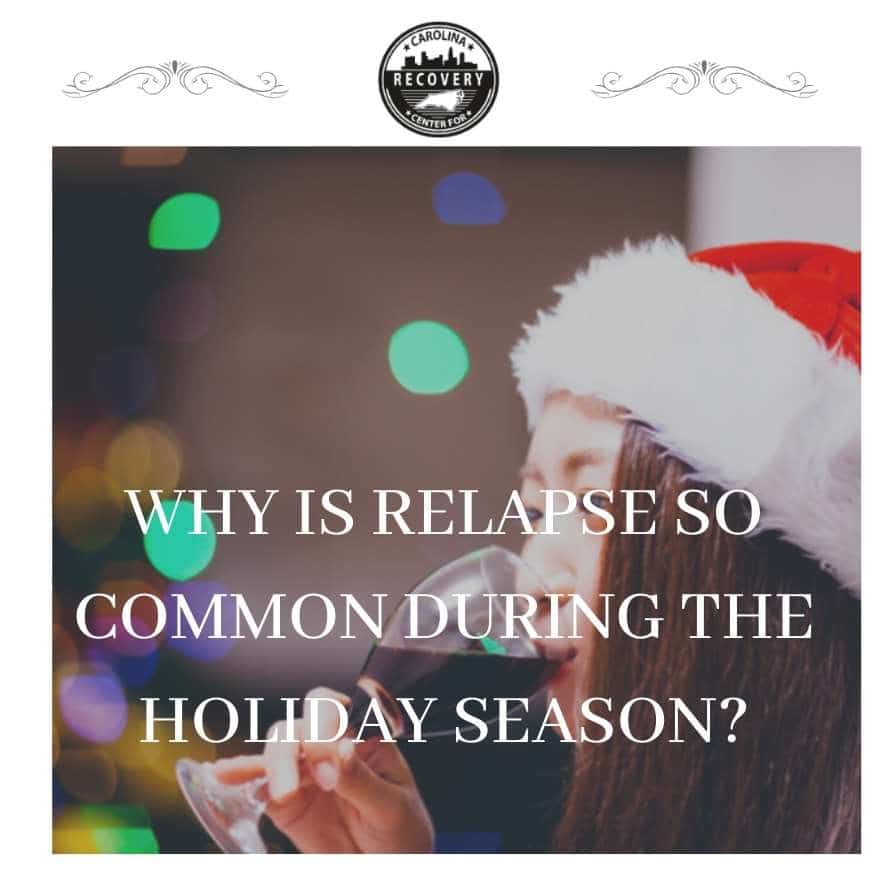Why is Relapse More Common During the Holiday Season?

Medically Verified: 2/1/24
Medical Reviewer
Chief Editor

All of the information on this page has been reviewed and verified by a certified addiction professional.
Oftentimes, the holidays are a stressful time. Many people tend to overextend themselves socially, physically, and financially during the holiday season. Unfortunately, this contributes to a large number of people who relapse during the holidays.
Holiday stress is a very real and very understandable thing, even for the general public. Keeping this in mind, it’s easy to imagine how stressful the holidays are for recovering addicts. Simple Christmas dinners could create severe anxiety. What questions will be asked? What happens if I’m offered a drink? Is it better to just stay at home?
Before you make any decisions for yourself or a loved one, it’s important to honestly assess the situation. Newly recovering addicts are most vulnerable to relapse, meaning they should be extra cautious during the holidays. It is important to note that this doesn’t mean that relapse will occur. However, it does mean that individuals in recovery should take extra caution and amp up their recovery maintenance techniques.
Drinking Rates Increase During the Holidays
A study published in Psychology of Addictive Behaviors followed young adults’ drinking habits for 52 weeks. The data was plotted on a graph to represent trends, and sure enough, there was a significant trend surrounding the holidays. According to the research, there was an increase in the number of drinks consumed on Thanksgiving and New Year’s Eve. Additionally, there was a small increase right before Christmas.[1]
To add, there was a significant increase in alcohol-related fatalities during the winter holidays. The National Highway Traffic Safety Administration (NHTSA) reported that approximately 36 fatalities occur each day from drunk driving, and this number increases to 45 during Christmastime and 54 during New Year’s.[2] However unfortunate, it’s clear to see that the holidays trigger many people to drink and abuse substances.
Common Triggers for a Holiday Relapse
Relapse triggers are characterized by people, places, things, and emotions that lead to alcohol or drug cravings and cause someone in recovery to revert to substance abuse. In other words, holiday stress can easily aggravate a problem with alcohol. Early recovery is often filled with intense drug triggers, however, they tend to become less frequent and less powerful as time goes on.
Unfortunately, because of the nature of the season, drug and alcohol relapse triggers can worsen and become overwhelming. If you do not know what to expect and how to deal with triggers, the holiday season could be problematic for your sobriety. In the name of awareness and prevention, we are outlining the most common relapse triggers during the holidays.
Holiday Stress
One of the top relapse triggers during the holiday season is stress. While the holidays are exciting, this time of year is also known to cause high levels of stress. Not only are the holidays financially stressful, but people often attempt to attend every event and fit each activity into their schedule – no matter the cost. Be aware of this as you begin the holiday season and make sure to have a full relapse prevention plan at hand.
Parties
While the holiday season is a time of family fun and celebrations with friends, holiday parties are typically filled with alcohol. Oftentimes, the drinking environment of holiday parties becomes too much for individuals in early recovery. If you are planning to attend a party with alcohol and drugs present, make sure to bring a sober support friend along with you.
Friends and Family
While the holiday season is about spending time with loved ones, it’s important to be careful. You may run into family members and friends that you normally avoid because they are dangerous to your sobriety. Additionally, some of your family members might even be addiction triggers over the holiday. This is especially true if you have a strained relationship with your family. Unfortunately, spending a substantial amount of time with them might leave you feeling anxious, stressed, or depressed. All of these emotions have the potential to lead to relapse.
High Expectations
Because of the high hopes that come with this time of year, one of the most common relapse triggers during the holidays is high expectations. While people talk about the magic of the holidays, you should not expect this time to cure your problems or erase the struggles you face in sobriety. Learning how to thrive in recovery takes time, mending broken relationships with family members doesn’t happen overnight, and not every holiday event will go smoothly. If you keep your expectations realistic, a mistake or bad night will not affect you so intensely.
How to Lower Your Risk of Relapse During the Holidays
If you are worried about relapsing during the holiday season, it’s important to be aware of the coping mechanisms you can use to deal with alcohol cravings during the holidays. Let’s take a look at the best ways to prevent relapse:
- Maintain your same schedule (therapy appointments, meetings, meal times, and bedtimes)
- Attend your addiction support meetings
- Schedule sober activities instead of attending parties with substances
- Avoid stressors
Ultimately, if you are having a hard time over the holidays, it’s important to contact your sponsor or a form of sober support. Additionally, make sure to practice proper self-care during the holidays. This can help to reduce your risk of relapse during the holiday season by a substantial amount.
Attending Treatment After a Relapse
If you have suffered from a relapse over the holidays or realized that your substance abuse is out of control, contact Carolina Recovery Center as soon as possible. With a combination of evidence-based treatment modalities, medication-assisted treatment, and constant, ongoing support- we can help you recover.
References:

